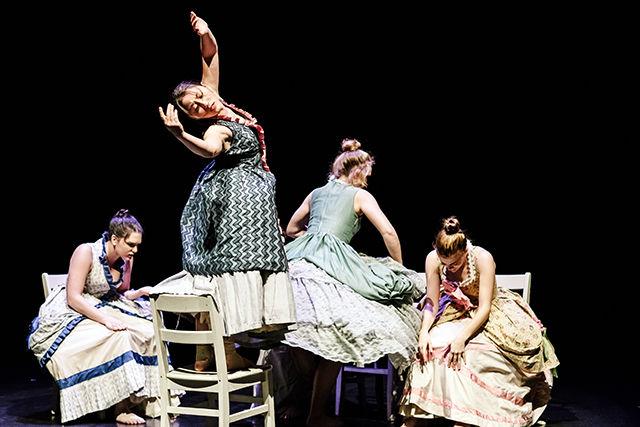NC State students who have a passion for dance and want to improve their knowledge and skills can now apply for the dance minor, beginning fall 2016. Styles included in the program range from clogging, to African dance, to ballet and modern dance.
Elizabeth Fath, a health and exercise studies professor, said that she is excited for the new dance minor as an NC State alumna because the school hasn’t added anything new to the dance program since she graduated.
“There are many many students involved in dance here at NC State,” Fath said. “There are the two academic dance companies, but then there are also probably 18 other student clubs with all different types of dance; things that aren’t always being addressed on the academic side. Then there are even more students who dance professionally in regional companies and who produce their own work. We’re trying to find a home or find a community for all of those people, integrating all the great academics we have here at NC State.”
The minor is designed to encourage balance while still allowing students to take courses they are interested in. Students seeking a dance minor are required to take courses from each category so that they become well-rounded. Dance theory classes will also be required, such as Dance and Society and Current Trends in Dance. Creative courses include Dance Composition and Independent Study in Dance. Practice courses, which include both performance- and technique-based courses, range from social dance to modern dance.
The minor is designed to drive students forward in their careers, services and artistry. The program helps those who are preparing for graduate study, as well as those who wish to pursue careers as performers, choreographers, educators or dance therapists. The minor can also help in other fields such as arts entrepreneurs or administrators, physical therapists, physicians, or in disciplines such as Africana studies, design, film and engineering.
“One thing [the minor] does for students who have already been in perhaps already dancing their entire lives or just interested in dance, this is going to give them the academic component,” Fath said. “Often times when students are growing up, and they’re dancing in a dance studio for example, they only have the physical practice. They don’t know anything about the history, they don’t know anything about the analysis, they don’t often get improvisational work or choreography instruction. So this is going to bring you to a more well-rounded understanding of dance and how it functions in society.”
Fath also described how a dance minor will help students who are just interested in dancing, even if they don’t make a career out of it. She said that dance teaches students lessons that can be applied to any discipline and qualities that employers look for such as discipline, creative thinking and group work.








